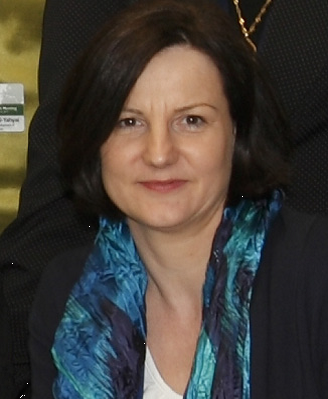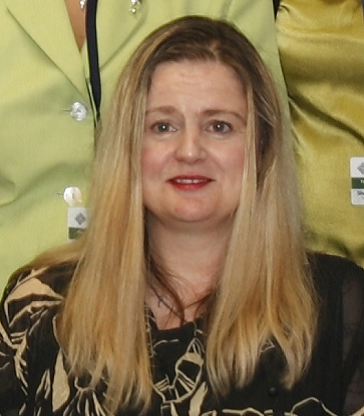At the latest with the launch of the United Nations Millennium Project in 2000 most Arab countries started to adopt ambitious targets for the empowerment of women in all fields of society and as part of this the promotion of female entrepreneurship. The views on what has been achieved in this respect are however differing to a large degree. According to some observers, Arab business women did not only manage to establish themselves more profoundly as economic actors in almost all countries of the region in recent years. In addition, they seem to show an increasing desire to organize their interests and engage in networking on the local, regional as well as international level. Though others point to the fact that despite some improvements and a host of promotional campaigns women’s economic and political participation remains exceptionally low in the Arab region and in particular the Gulf countries. Moreover, there are still numerous legal, institutional and other constraints preventing Arab business women from being able to enjoy anything coming close to a ‘level-playing-field’ with their male counterparts. By attracting novel and innovative research the workshop aims to offer new insights for a better understanding of the apparently contrasting assessments in the existing literature on the role of business women in the economies and societies of the Arab world. For this purpose papers are particularly welcome which try to link the analysis of female entrepreneurship in the region with the broader debate on the private sector and its evolving role and power in the Arab countries and / or the more general topic of ‘Women and Development’ and its different theoretical concepts.
3 DAYS / 12 Workshops
MORE THAN 300 ACADEMIC PAPERS
The topic of Women and development or women empowerment has formed part of the international developmental debate long before the Millennium Development Goals (MDGs) were adopted at the New York Millennium Summit in the year 2000. The approval of the MDGs, however, and among them the goal of “gender equality and women’s empowerment” (MDG 3), may have delivered a strong additional push for gender-specific issues to make major inroads into long-term development planning in Arab countries. Many Arab governments endorsed ambitious targets for the promotion of women’s rights and capabilities. In addition, new agendas have seen the light of the day in recent years even in the most conservative Arab countries calling for stronger empowerment of women in all fields of society and as part of this the promotion of business women. There are, however, quite different views and appraisals among local and international observers on what has been achieved to date as regards women’s empowerment in general and the opportunities and capabilities of business women in the Arab region in specific. According to some observers, Arab business women did not only gain in power and importance as economic actors in almost all of the MENA economies. In addition, female entrepreneurs are increasingly identified in national development plans as indispensable sources for future and private sector-driven job-creation, innovation and diversification. Moreover, business women in the region started in recent years to voice and organize their interests and to step up networking in the national arena and beyond. In contrast to this rather rosy picture, other observers point to the fact that apart from education and health, results achieved so far with respect to MDGs in general and MDG 3 in specific are somewhat limited if not disillusioning. As regards political and economic participation of women, many Arab countries have still a long way to go to catch up with other regions of the developed as well as developing world. While, for example, Islamic law does guarantee women’s rights to own property and keep control of wealth brought into marriage, banks in many Arab countries still require female entrepreneurs looking for financing for their own ventures to have their husbands or brothers co-sign on loans. In addition, strict gender segregation complicates women’s live both in business and at work and renders female employment highly expensive. The literature on business women in the Middle East and North Africa including those published by international institutions like the World Bank, the Center for Arab Women for Training and Research (CAWTAR) or different UN Organizations (UNDP, ESCWA and others) focuses heavily on the profile or characteristics of female entrepreneurs and companies led and/or owned by women, their economic power or contribution to growth and job-creation as well as the legal and institutional environment or business climate of women entrepreneurs. A few mostly country-specific case studies explore in greater detail the cultural and / or religious background and its influence on female entrepreneurship. Some others trace the careers of female entrepreneurs and managers during the last two or three decades in a more general manner or against the background of distinct junctures or turning points in national reform and development policies. However, little seems to be known about other interesting issues such as their apparently increasing desire to organize interests, their networking activities in- and outside the business community or female corporate leadership and management styles despite that similar topics are currently high on the agenda when it comes to analyzing the Arab private sector and its past, present and future roles. In addition, while there is much talk about ‘women and development’ in Arab countries and in particular inside the international development community, the discussion or analysis of the actual and potential future role of business women in triggering gender-specific (and/or overall) development and participation seems to be rather neglected.
Therefore, the workshop aims at making a distinct contribution to the existing literature not only by bringing together recent and innovative research on female entrepreneurship in the Arab world and the Gulf countries in particular. More specifically, the workshop intends to go beyond the rather limited theoretical and analytical framework guiding previous research on business women in the Middle East and North Africa by linking it with the broader debate on the private sector proper in the Arab countries on the one hand and with the general topic of ‘Women and Development’ on the other hand as outlined in greater detail below. Within this framework it is hoped that papers to be presented in the workshop will also offer new insights for a better understanding of the above mentioned contrasting views and assessments of the role of business women in the economies and societies of the Arab world.

